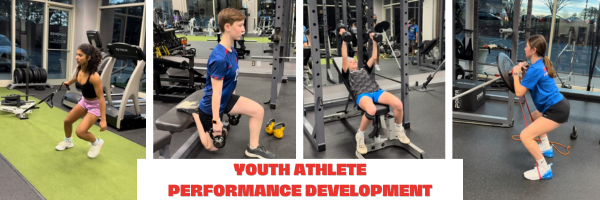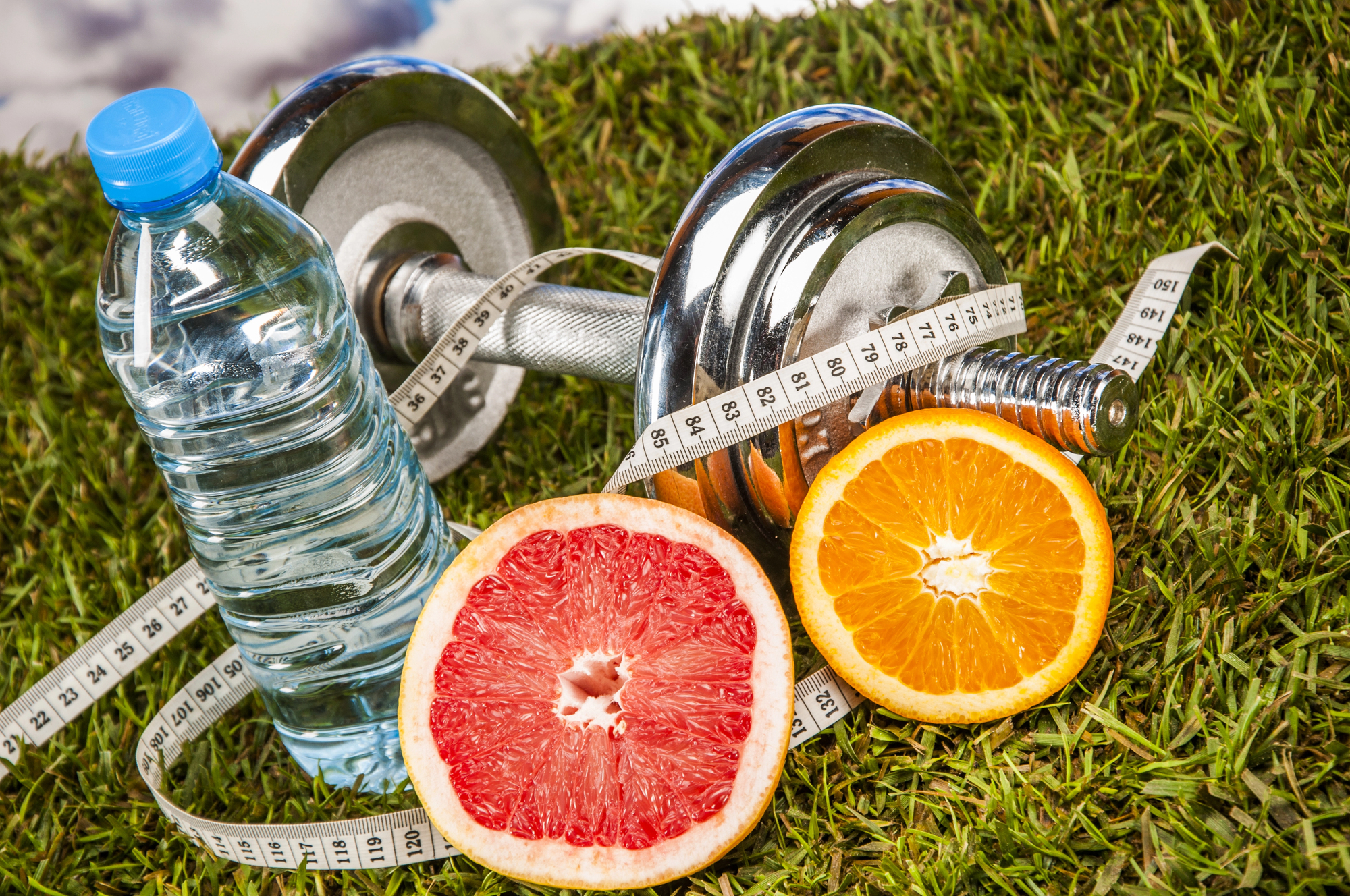A common question that parents of young athletes and children may ask at some point in their adolescent years, “is it safe for my child to engage in resistance or strength training?”
The answer?
Absolutely.
With proper form and technique, it is not only safe, but hugely beneficial for all kids to begin strength training. Now, we are not talking about overloading the bar with heavy weight, or training our kids to put on massive amounts of muscle, but resistance training can help build a strong and resilient musculoskeletal system, promoting healthy growth and development. Strength training for kids is also an important piece of training for athletics, and can help stabilize and strengthen the foundations of a child’s performance.
Better Performance
Recent research and expert opinions resoundingly support the idea that engaging in strength training can be highly beneficial for young athletes. In fact, we could write a whole article just about its benefits for youth soccer players, some of which include – improved power and explosiveness, increased endurance, faster speed and agility, and better body control and balance. By enhancing muscular strength, individuals gain the capacity to sprint faster, jump higher, kick with more power, and move more fluidly on the field thus gaining a competitive edge. Through consistent and tailored strength training programs, young athletes not only fortify their physical capabilities but also develop the essential skills needed to excel in the demands of their sports.
Injury Prevention
Another primary benefit of strength training is its ability to fortify muscles, tendons, and ligaments. By building a strong foundation, young athletes can significantly reduce their risk of injury during both training and competition. This is particularly important during the growth spurt years when muscles and bones are rapidly developing and may be more susceptible to injury.
Mental Strength & Confidence
In addition to physical benefits, strength training nurtures mental toughness and resilience in young athletes. The discipline required to adhere to a structured training regimen instills valuable life skills such as goal setting, perseverance, and self-discipline. Overcoming challenges and progressively improving strength levels can boost confidence and self-esteem, empowering children to tackle obstacles both on and off the field.
Furthermore, engaging in strength training provides an outlet for stress relief and promotes better mental health. Exercise stimulates the release of endorphins which are neurotransmitters that promote feelings of happiness and well-being. This can be particularly beneficial during the often stressful adolescent years, helping children navigate academic pressures and social challenges with greater ease.
Safety First
While strength training can be incredibly beneficial for the young athlete, it is important that we make sure an athlete is training in safe, monitored conditions, with proper technique, form and equipment. These factors are paramount to prevent injuries and ensure optimal progress. Parents should consider enrolling their children in supervised strength training programs led by qualified coaches or personal trainers who specialize in youth fitness. Providing a safe, controlled and guided environment for kids to begin strength training will ensure safety, education of proper technique and overall success in growth and development in their strength training, and athletic journey.
Not Just For Athletes
These benefits are not just for young athletes, but for all kids. Strength training plays a crucial role in enhancing overall health and well-being. It aids in weight management by increasing metabolism and promoting the development of lean muscle mass. Regular exercise, including strength training, also helps in reducing the risk of chronic diseases such as obesity, diabetes, and cardiovascular issues.
It’s important to remember that our kids are still growing and learning so introducing them to resistance training in a developmentally-appropriate manner is key, then gradually progressing in intensity and complexity as the child develops strength and proficiency. Emphasis should be placed on mastering proper form and technique rather than lifting heavy weights. Additionally, adequate rest and recovery periods are essential to allow the body to adapt and grow stronger safely.
Important Muscle Groups to Strengthen for Youth Soccer Players
Lower Body: Training and strengthening the lower body is important for all soccer players to allow them to meet the physical demands of the sport. This includes aspects such as power and explosiveness, balance and stability, agility and mobility, jumping ability and more. All of these are extremely important factors to be successful in the sport, and strengthening muscles that support the lower body will ensure success on the field!
Muscles of the Thigh –
Hip Flexors – Seated leg raises
Quads- Walking Lunges
Hamstrings- Hamstring Walkout
Adductors – Copenhagen
Muscles of the Lower Leg –
Gastrocnemius – Calf Raises
Anterior Tibialis – Wall supported toe- ups
Core:
Improving strength in one’s core is extremely crucial for a soccer player. Training the core will help improve an athlete’s stability and balance (as our core is our body’s center of gravity), will help players in the control of their own body and movements, will assist with injury prevention (as the core will stabilize and assist in a good posture), assists in quickness and speed, and aerial ability. The core musculature also plays a key role in power transfer up the kinetic chain. Whether it’s running, kicking, punting or more, the core stabilizes, strengthens and increases a soccer player’s performance in the game.
Total core – Plank
Oblique – Side plank
Upper Body:
Soccer players (field players) may not be able to touch the ball with their hands, however that doesn’t mean that upper body strength should be left out. It is still important for soccer players to train their upper body as it aids in shielding the ball, improving passing and shooting accuracy, enhancing physicality, preventing injuries, and contributing to overall athleticism on the field. While soccer primarily relies on lower body strength, a strong upper body provides players with better control, power, and resilience during matches.
Chest – Pushups
Back – Superhero Isometric hold
Shoulder -Pike Pushups
Other supportive evidence::
“The Importance of Strength Training for Young Athletes”
“Strength Training for Children”
“Should youth soccer players lift weights?”




